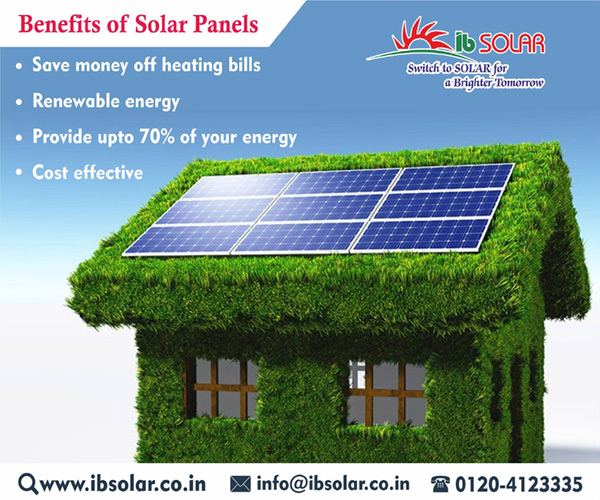Explore Simply Solar Illinois for Cost-Effective Renewable Energy
Explore Simply Solar Illinois for Cost-Effective Renewable Energy
Blog Article
Just How Solar Power Can Help You Conserve Money and Decrease Your Carbon Footprint
The combination of solar power into your energy portfolio offers an engaging possibility for both economic cost savings and environmental stewardship. By taking advantage of the sun's energy, property owners can considerably decrease their monthly utility expenditures while additionally securing against the unpredictability of future power expenses. In addition, the shift to solar contributes to a marked decrease in carbon emissions, aligning personal financing with broader ecological goals. As various federal government motivations end up being available, the inquiry emerges: exactly how can one successfully browse the preliminary investments and recurring benefits of solar technology to optimize both economic and ecological gains?
Recognizing Solar Power Cost Savings
While the change to solar energy commonly involves a preliminary financial investment, recognizing solar power cost savings is critical for homeowners and organizations alike. Solar power systems can substantially reduce power expenses by utilizing the sun's power, translating right into considerable long-lasting financial benefits. By producing their own electrical energy, customers minimize reliance on grid power, which is subject to varying costs. These financial savings can gather with time, frequently resulting in a fast return on financial investment.
Additionally, solar power systems might get numerous financial incentives, consisting of tax credit reports and rebates, further enhancing their cost-effectiveness. The availability of net metering permits individuals to offer excess energy back to the grid, developing an added profits stream. These aspects contribute to the overall financial savings related to solar energy.

Along with direct monetary cost savings, solar power provides the added advantage of raising residential property worth. Residences furnished with solar panels are typically a lot more appealing to customers, as they assure lower energy prices - Simply Solar Illinois. Recognizing these components is essential for anyone considering solar power, as it highlights not simply the prospective monetary gains, however also the broader ecological and financial benefits of adopting sustainable energy solutions
Initial Costs vs. Long-Term Benefits
When evaluating solar energy, it is very important to consider the preliminary expenses versus the lasting benefits. The upfront investment for solar panels, setup, and associated tools can be considerable, usually varying from $15,000 to $30,000, depending upon the system size and home energy demands. This first expense may discourage some property owners; however, it is important to consider the possible financial savings gradually.
Once installed, solar power systems can significantly minimize and even get rid of regular monthly power expenses, bring about substantial lasting monetary benefits. Researches indicate that home owners can save anywhere from $10,000 to $30,000 over the life expectancy of their solar system, typically 25 years. Furthermore, several states provide motivations, tax credits, and refunds that can counter preliminary prices, making solar more easily accessible.

Decreasing Your Carbon Impact
Minimizing your carbon footprint is an essential consideration in today's eco mindful society, and embracing solar energy is among one of the most effective approaches to achieve this objective. Solar energy is a clean, eco-friendly resource that significantly reduces reliance on nonrenewable fuel sources, which are major contributors to greenhouse gas emissions.

Furthermore, the extensive adoption of solar innovation encourages the advancement of green tasks and supports technologies in energy storage space and efficiency. The even more people and organizations invest in solar energy, the greater the cumulative reduction in carbon exhausts, cultivating a cleaner environment for future generations.
Government Incentives and Rebates
Taking on solar power not only profits the setting however can also bring anchor about significant monetary cost savings, especially with the accessibility of federal government incentives and rebates. Different government, state, and local programs are developed to motivate homeowners and services to invest in solar energy systems, making the change more inexpensive.
One of one of the most noticeable incentives is the Federal Financial Investment Tax Obligation Credit (ITC), which allows planetary system proprietors to deduct a considerable percent of the installation expenses from their government taxes. This motivation has actually been pivotal in minimizing the in advance expenditures connected with solar power systems. Additionally, many states provide their own tax credit reports, gives, and discounts that can better enhance cost savings.
Additionally, some regional federal governments give residential or commercial property tax exemptions for solar installations, guaranteeing that property owners do not deal with enhanced real estate tax as an outcome of their eco-friendly power investments. Utility companies may also use rewards, including web metering and feed-in tariffs, which enable solar power customers to offer excess power back to my company the grid.
Choosing the Right Planetary System
Picking the proper solar system is vital for making best use of power efficiency and financial advantages. The decision depends upon numerous elements, including power requirements, budget plan, and available room. House owners must begin by assessing their power intake to figure out the system dimension needed for optimal performance.
Next, consider the various sorts of solar technologies readily available. Simply Solar Illinois. Photovoltaic (PV) panels are one of the most typical, transforming sunshine directly right into electrical power, while solar thermal systems concentrate on heating water. Each kind has distinct advantages relying on individual demands
Budget considerations are additionally critical. Preliminary installment costs can differ significantly, so it's crucial to contrast quotes from multiple carriers and explore funding alternatives. Government incentives and refunds can further decrease the monetary worry, making solar systems much more obtainable.
Conclusion
The environmental advantages of solar power add to sustainable practices essential for combating climate adjustment. Federal government rewards enhance the feasibility learn this here now of solar modern technology fostering, motivating a transition in the direction of a cleaner, a lot more economically efficient power resource.
Report this page